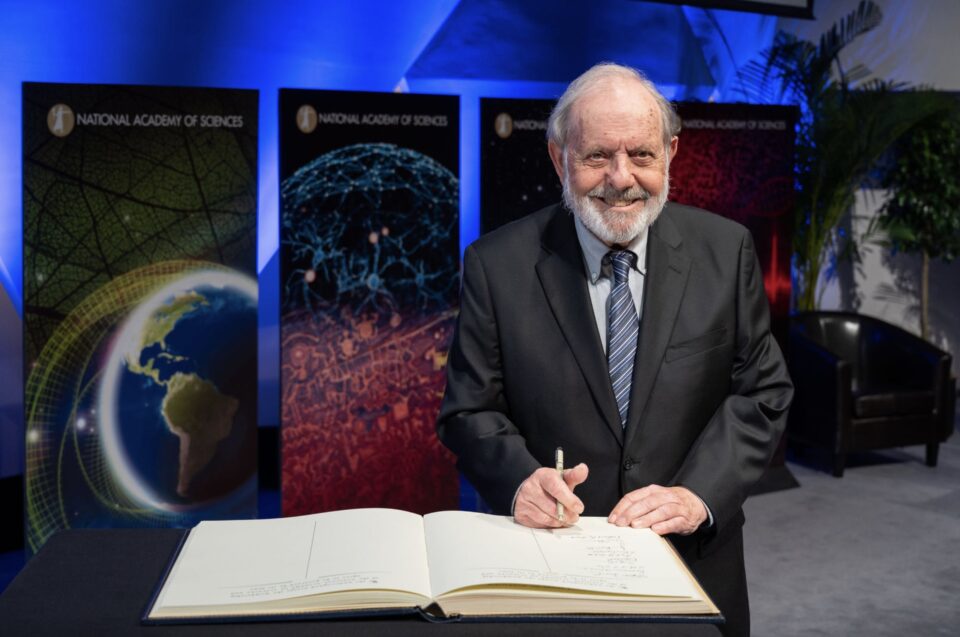Principal Investigators
DR. ROBERT A. BJORK
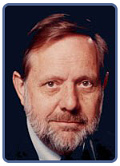
Honors and Awards
- Fellow: National Academy of Sciences; American Academy of Arts and Sciences
- President: American Psychological Society; Western Psychological Association; Psychonomic Society; Society of Experimental Psychologists
- Chair: UCLA Department of Psychology
- Editor: Memory & Cognition; Psychological Review; Action Editor: Proceedings of the National Academy of Sciences
- Teaching and Mentoring awards: UCLA’s Distinguished Teaching Award; Distinguished Scientist Lecturer; American Psychological Association; James McKeen Cattell Lifetime Achievement Award; Mentoring Award: Association for Psychological Science Award
Robert A. Bjork, Ph.D. in Psychology from Stanford and B.A. in Mathematics from Minnesota, served as a Distinguished Research Professor in Psychology at the University of California, Los Angeles. His research delved into human learning and memory, exploring the applications of learning science in instruction and training. A Fellow of the National Academy of Science and the American Academy of Arts and Sciences, he has held editorial roles, chaired committees, and led academic departments. Recognized with numerous awards, including UCLA’s Distinguished Teaching Award, his contributions extend across multiple prestigious organizations in psychology and education.
rabjork@psych.ucla.edu
Publications
Faculty Webpage
Curriculum Vitae
DR. ELIZABETH LIGON BJORK
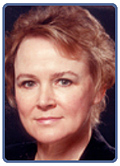
Honors and Awards
- Fellow: American Psychological Society; Psychonomic Society: Western Psychological Society; Society of Experimental Psychologists
- Chair/Vice Chair: Chair of UCLA Academic Senate; Senior Vice Chair of Department of Psychology, and Undergraduates
- Editorial Board/Reviewer: Perception & Psychophysics; Memory & Cognition; National Science Foundation; NIMH Initial Review Group
- Awards: UCLA’s Distinguished Teaching Award; James McKeen Cattell Lifetime Achievement Award; Mentoring Award: Association for Psychological Science; Distinguished Career Award: Western Psychological Association
- Service: Originator of Annual Psychology Undergraduate Research Conference); Faculty Advisor of UCLA’s Psi Chi Chapter (National Honor Society in Psychology)
Elizabeth L. Bjork, Ph.D. in Psychology from the University of Michigan and B.A. in Mathematics from the University of Florida, was a Professor of Psychology and Senior Vice Chair at the University of California, Los Angeles. She chaired UCLA’s Academic Senate and was a Distinguished research professor. her research in human memory focused on inhibitory processes and their role in creating an adaptive memory system. Supported by the James S. McDonnell Foundation, her recent work explored applying laboratory learning principles to enhance instructional practices. As a joint recipient of the James McKeen Cattell Fellow Award with Robert A. Bjork, she is recognized for outstanding contributions to applied psychological research.
elbjork@psych.ucla.edu
Publications
Faculty Webpage
Curriculum Vitae
Ph.D. Graduates
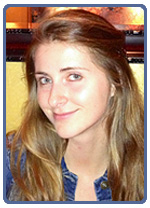
Saskia Giebl, Adjunct Professor at Columbia University, Learning and Performance Consultant (Global)
sgiebl@psych.ucla.edu
Saskia, Ph.D. investigates cognitive processes that enhance long-term learning and transfer of knowledge to new learning circumstances in the classroom, the workplace, and in sports. Specifically, she focuses on types of practice that promote effective activities and conditions for lasting learning to occur.
As an active liaison between learning scientists and the general public, Saskia gives presentations and provides workshops/seminars on how we can master lasting learning to both academic and business audiences. As well, her expertise extends to the sports field where she applies science-based training methodologies to promote better performance.

Jordan Brabec
jbrabec@ucla.edu
Jordan is broadly interested in the intersection of cognitive research and educational practice, Jordan is currently most interested in examining whether and how the true-false test, which is frequently derided as an ineffective, or even harmful, test format, can be optimized to elicit more generative retrieval processes, enhance the retention of accurate information, reduce the influence of negative suggestion, and promote transfer. Some of Jordan’s other, nonacademic interests include music composition and performance, plant-based cooking, theatre, and caring for his dog, Hershel, who is far too cute for his own good. After earning his PhD, Jordan plans to explore a career path in the private sector, applying his training as a cognitive psychologist in ways that, with any luck, might enhance the iterative improvement of our world.
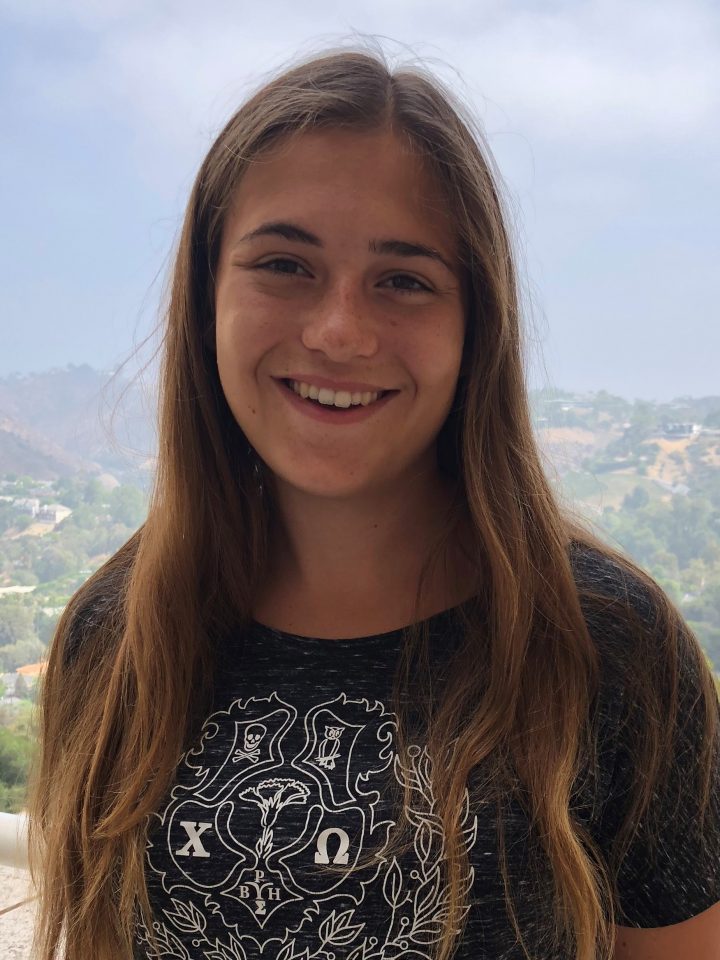
Megan Imundo, Research Scientist at Arizona State University
meganimundo@ucla.edu
Personal Webpage
Megan is interested in improving learning through strengthening the encoding and retrieval of accurate information and rejection of inaccurate information. She also has a specific interest in learning from non-traditional sources.
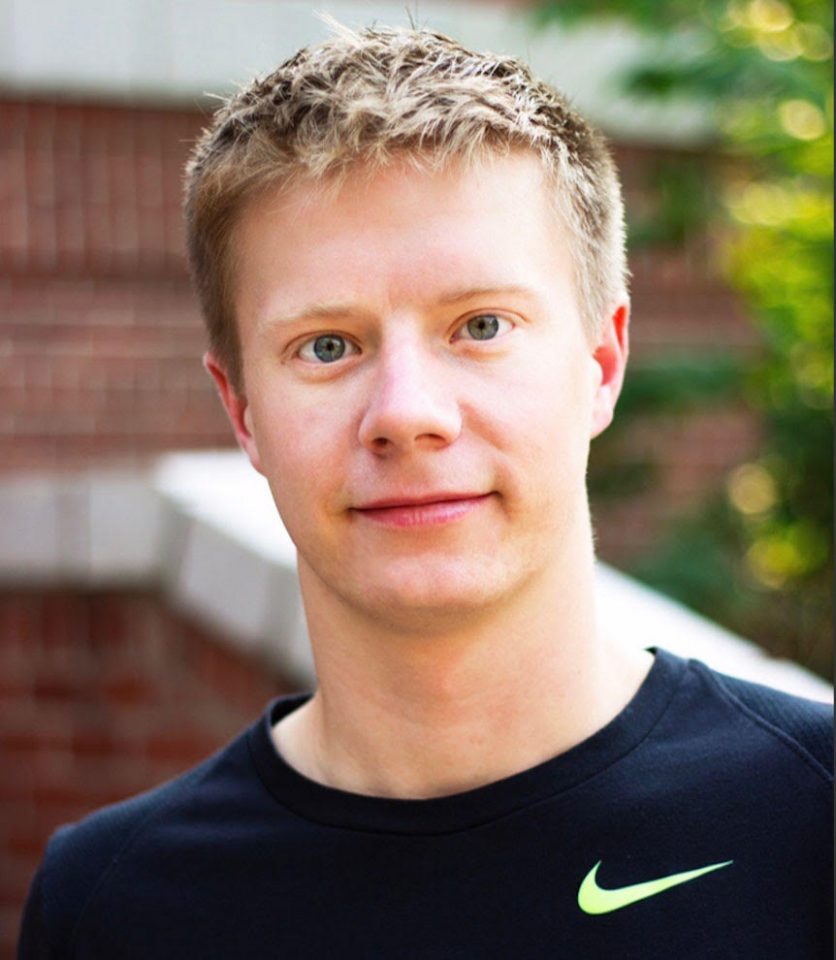
Dillon Murphy, Postdoctoral Researcher at Arizona State University
dmurphy8@ucla.edu
Publications
Personal Webpage
My research interests include memory capacity (both long-term and working memory), selectivity in learning and memory, false or distorted memories, metacognition, attention, intelligence, and how these things change over the course of life. Additionally, I am interested in many applied aspects of learning and memory.
Graduate Student
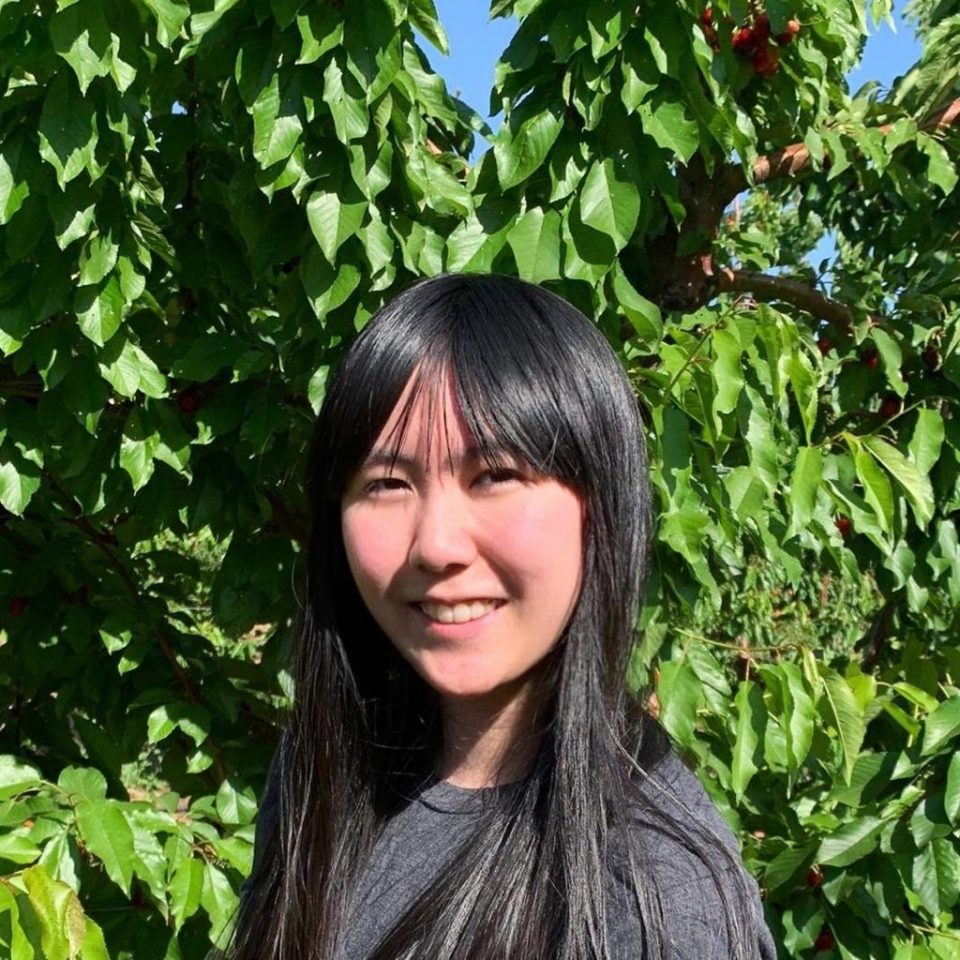
Ashley Chen
ashleychen1@g.ucla.edu
Lab Manager and Staff Research Associate
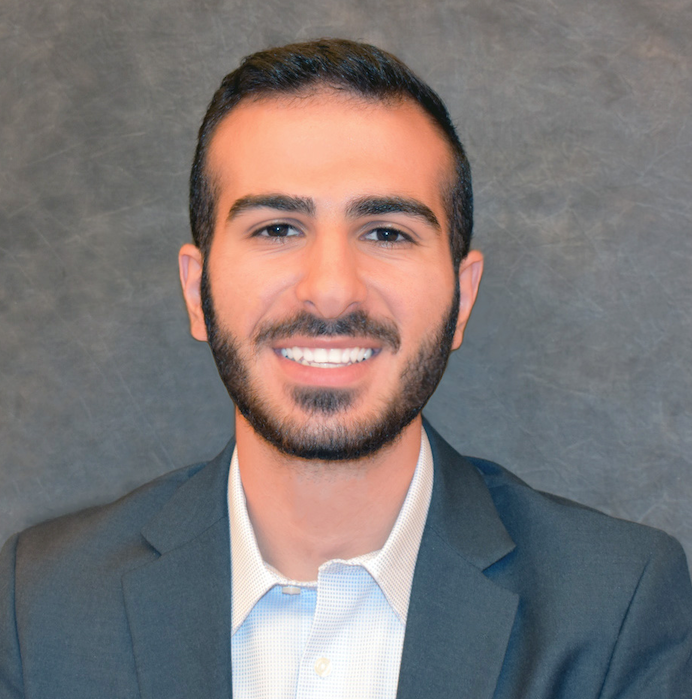
George Bandek
georgebandek@ucla.edu
For further information regarding the lab, please contact cogfog.lab@gmail.com.
The Early Era
(1979-1983)
- ELIZABETH BJORK
- ROBERT BJORK
- THOMAS WICKENS
- JESSE RISSMAN
- FRANCOIS CHRISTEN
- MICHAEL BURNS
- CHARLES HOFACKER
- J. THOMAS MURRAY
- IRIS FIRSTENBERG
- TAKASHI KATO
- CYNTHIA YELVINGTON
- MICHAEL GOLD
- RONALD FISHER
- JANET METCALFE
- ERIC EICH
- HAROLD GELFAND
- ALAN RICHARDSON
- STEVE WHITE
- RICHARD GONZALEZ
- CARLA CHANDLER
The Generation Generation
(1984-1988)
- ELIZABETH BJORK
- ROBERT BJORK
- THOMAS WICKENS
- JAMES NAIRNE
- ALAN RICHARDSON
- STEVE WHITE
- RICHARD GONZALEZ
- YIH-ING HSER
- FOOK CHUA
- ELIOT HIRSHMAN
- PATRICIA DEWINSTANLEY
- MARIE DENNIG
- CARLA CHANDLER
- TODD GROSS
- BARBARA SPELLMAN
- LAURA DA COSTA
The Inhibited Era
(1989-1993)
- ELIZABETH BJORK
- ROBERT BJORK
- THOMAS WICKENS
- JANET METCALFE
- HAROLD GELFAND
- ALAN RICHARDSON
- PATRICIA DEWINSTANLEY
- MARIE DENNIG
- CARLA CHANDLER
- TODD GROSS
- BARBARA SPELLMAN
- LAURA DA COSTA
- STEVEN CLARK
- MICHAEL ANDERSON
- ERIC SCHUMACHER
- DANIEL SIEGEL
- STEVE MACHADO
- ANTHONY WAGNER
- ANDREA HALPERN
- DANA (SCHNEIDER) MILLER
- MARC VANHUELE
- JOHN SHAW
- KARL OSWALD
- KAY LIVESAY
- WENDY FRANCIS
- CATHERINE FRITZ
- AARON BENJAMIN
- DINA (GHODSIAN) LEVY
- JUDY FUSCO
Illusions of Competence Era
(1994-1998)
- ELIZABETH BJORK
- ROBERT BJORK
- THOMAS WICKENS
- LAURA DA COSTA
- MICHAEL ANDERSON
- JOHN SHAW
- KAY LIVESAY
- WENDY FRANCIS
- CATHERINE FRITZ
- AARON BENJAMIN
- DINA (GHODSIAN) LEVY
- JUDY FUSCO
- KRISTA SCHENDEL PARKER
- DOMINIC SIMON
- KEN MARTIN
- DAN KIMBALL
- ANGELA KNOX
- XUN LIU
- SARA APPLETON-KNAPP
- DAN KRAWCZYK
- DORIS TRACHTMAN
- ROBERT MORRISON
Retrieval-Practice Era
(1999-2009)
- ELIZABETH BJORK
- ROBERT BJORK
- THOMAS WICKENS
- ALAN CASTEL
- BARBARA KNOWLTON
- DOMINIC SIMON
- KEN MARTIN
- DAN KIMBALL
- ANGELA KNOX
- XUN LIU
- SARA APPLETON-KNAPP
- DAN KRAWCZYK
- DORIS TRACHTMAN
- ROBERT MORRISON
- COLLIN GREEN
- LAURA ELDRIDGE
- CHRIS HADLEY
- BRUCE LEE
- INDRE VISKONTAS
- BETHANY BURIES, NEE CAUGHEY
- BENJAMIN STORM
- MATTHEW HAYS
- GUIDO SCHAUER
- DAN FINK
- JASON FINLEY
- DARA GHAHREMANI
- NATE KORNELL
- TEAL EICH
- GENNA AGNELLO
- VERED HALAMISH
- JOHN WALKER
- JOHN NESTOJKO
- JERI LITTLE
- COLIN SMITH-CLARK
- HALEY VLACH
- EVERETT METTLER
- MONICA BIRNBAUM
- MICHAEL VENDETTI
- MICHAEL FRIEDMAN
- MIA NUNEZ
- LAURA JOHNSON
- CAROLE YUE
- MICHAEL COHEN
- KP THAI
- VERONICA YAN
- MIKEY GARCIA
Interleaving Era
(2010-2024)
- ELIZABETH BJORK
- ROBERT BJORK
- ALAN CASTEL
- BARBARA
KNOWLTON - JESSE RISSMAN
- GENNA AGNELLO
- VERED HALAMISH
- JOHN WALKER
- JOHN NESTOJKO
- JERI LITTLE
- COLIN SMITH-CLARK
- HALEY VLACH
- EVERETT METTLER
- MONICA BIRNBAUM
- MICHAEL VENDETTI
- MICHAEL FRIEDMAN
- MIA NUNEZ
- LAURA JOHNSON
- CAROLE YUE
- MICHAEL COHEN
- KP THAI
- VERONICA YAN
- DANIEL SCHEIFFER
- GENNA ERLIKHMAN
- DOE BUCHLI
- COURTNEY CLARK
- MIKEY GARCIA
- TARA PATTERSON
- SHARON NOH
- ADAM BLAKE
- NICK SODERSTROM
- ERIN SPARCK
- CATHERINE MIDDLEBROOKS
- MARY HARGIS
- KOU MURAYAMA
- KENJI IKEDA
- FARIA SANA
- TOSHI MIYATSU
- DANNY OPPENHEIMER
- SASKIA GIEBL
- ALISON TSAI
- DEREK STOECKENIUS
- STEFANY MENA
- JULIA SCHORN
- JORDAN BRABEC
- MEGAN IMUNDO
- MARY WHATLEY
- STEVEN PAN
- DILLON MURPHY
- ASHLEY CHEN
- GEORGE BANDEK
Dr. Robert Bjork at the 2023 National Academy of Sciences
